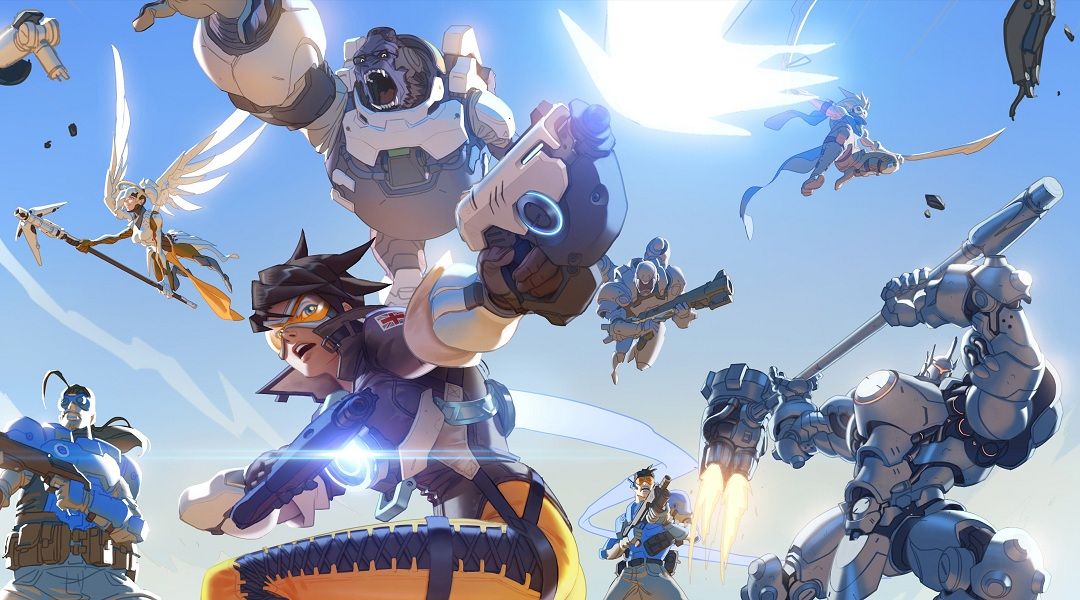With Overwatch's ranked mode just around the corner, one author takes a look at what makes the game stand out from many of the other shooters on the market.
Blizzard's new first-person shooter Overwatch has been out for a little over two weeks and it is already topping my list for 2016's Game of the Year. While other shooters haven't been able to hold my attention for a good 3 or 4 years at this point, there's something about it that sets it apart from other titles – and that's the teamwork.
While other shooters such as Call of Duty or Battlefield tend to have players set onto two teams, there is often very little in the way of teamwork implemented into the gameplay. Sure you might be working together to capture an objective, or riding in the same vehicle as another player, but there's always that element of self-gratification that takes over and makes teams split into a series of individuals running around the map to get the most kills and show off their skill in-game.
Overwatch gets around this by not displaying kill/death ratios or having players compete within their own teams, but rather having deaths register as eliminations. If you hit an enemy even once, you'll get a notification when they are finished off, helping the kill feel more like a team effort than a competition to steal the last hit. The game does cater to those who wish to roam by themselves, too, with characters such as Tracer and Genji designed to infiltrate enemy lines and pick off heroes who are setting up a defense but the difference is that this will also help the other members of your team in their efforts to push the objective, rather than registering as another kill on your score card.
Every hero in Overwatch has their strengths and their weaknesses, and none can survive for long without assistance from others. Players learn very quickly that a team with only offense heroes will not be able compete against a balanced team, who can pick you off from a distance while restricting your movement with a tank character. Although teams often opt to go without, support characters are necessary to win games, as shown by a fan site that details Overwatch win-rates. There's a reason that Symmetra and Lucio have such high win rates despite their lack of offence, and it's because they are constantly working to ensure their team stays in the fight.
A team with a decent healer will beat a team without one nearly every time. Sure, they may not do as much damage as the other players but weigh that against Mercy's ability to Resurrect the whole team at full health or Lucio's Sound Barrier, and it's clear that the support characters can turn the tide of battle in seconds. Without even mentioning the constant healing that can keep the damage-dealers up, without them having to run back for health packs, it's obvious that a healer's team is being buffed significantly from their presence.
Unfortunately, so far players seem unwilling to choose the support characters themselves. I've seen many games where everyone is so set in their choice of hero that they won't even look at what the team needs before picking a powerful kill-seeking hero like McCree. It's not a bad thing to have a McCree on your team by any means, but when we've already got 5 people choosing a hero based on preference, I'd much rather a player fill that gap in our line-up.
It's a sad sight when I'm the last person to choose on a team and we're missing both a tank AND a support character. I believe this will all change with the release of competitive play later this month, as higher-rank players will be ones willing to put the team before their own wants and pick heroes that are needed, rather than the ones they enjoy most.
But Blizzard have accounted for this too, it seems. To further the idea that Overwatch is a team game, there are mechanics built in to help struggling heroes as they attempt to push the objective. For instance, a Reinhardt without a healer is a pain to play, but standing next to the payload will provide a passive heal to the German hammer-wielder or any other team member who would join him. Some other heroes, such as Roadhog, seem to be designed with everything they need: a quick self-heal, a powerful offense, and a good range on his chain hook.
Combining the strengths of heroes in order to cover each other's weaknesses is where the game really begins to shine. Sticking the allegedly over-powered Bastion in his turret form behind Reinhardt's protective shield will lead to a deadly force to be reckoned with. Have a Mercy nearby to provide damage boosting and you'll rip apart the enemy team in no time. That is, until you get countered by a smart player switching character to a Widowmaker who can snipe down from a vantage point, or a Junkrat who can quickly break through the shield while remaining safely in cover.
Blizzard intended Overwatch to be all about character-switching, something that often goes under-utilized by the players in my opinion. Every hero can be countered by others, so a team who is struggling mid-game only needs look at their opponent's line-up and switch their team's roster as appropriate. The game features powerful heroes but there's a remarkable amount of balance to the gameplay that makes it feel like every choice is viable, something that is likely to do with the game's extensive time in closed beta. It's exciting to see what new features Blizzard will bring to the game in the future, and even more so to see how Overwatch's new hero Sombra will fit into the game.
Overwatch is now available for PlayStation 4, Xbox One, and PC.

